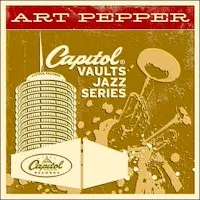Styles: Vocal And Piano Jazz
Year: 1990
File: MP3@320K/s
Time: 70:43
Size: 162,5 MB
Art: Front
(6:04) 1. Night Lights
(6:14) 2. What'll I Do
(4:49) 3. Lovewise
(6:34) 4. For Sentimental Reasons
(6:22) 5. The More I See You
(6:40) 6. Gee Baby, Ain't I Good To You
(9:20) 7. I Keep Going Back To Joe'S
(5:09) 8. Mamselle
(9:04) 9. That's All
(5:43) 10. That Sunday, That Summer
(4:40) 11. Nature Boy
It's a bit ironic that Nat "King" Cole was the singer Bobby Scott paid tribute to on For Sentimemal Reasons, for the singers sounded nothing alike. Cole's voice was about as smooth and urbane as it gets, whereas Scott's expressive singing had a rough, weathered quality during the last years of his life. This intimate CD, which features Bucky Pizzarrelli on guitar, Steve La Spina on bass and Ronnie Zito or Jimmy Young on drums, isn't a tribute in the sense that the singer/acoustic pianist tries to emulate Cole; rather, Scott brings his own recognizable style to "Nature Boy," "Gee Baby, Ain't I Good to You," "For Sentimental Reasons" and other songs associated with Cole. Another high point of the CD is "Mamselle," a lovely gem that Frank Sinatra and Art Lund recorded in the 1940s. Even though Scott's singing wasn't very Cole-like, they did have one thing in common: both recognized the value of economy and simplicity. Sadly, Scott had only about a year and a half left to live when this excellent album was recorded. ~ Alex Henderson http://www.allmusic.com/album/for-sentimental-reasons-mw0000204459
For Sentimental Reasons




















